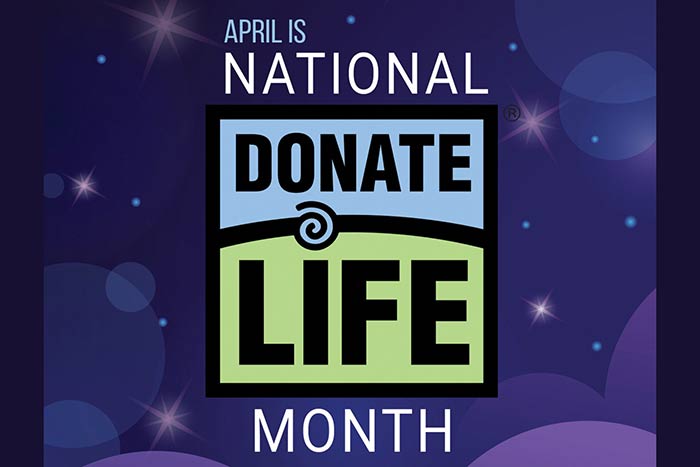Our bodies are wired to defend themselves against foreign invaders. After a patient undergoes an organ transplant, the body responds to the new organ as if it were a foreign object. The immune system goes into overdrive trying to reject it. This is why it is vital for transplant patients to take anti-rejection medications or immunosuppressant drugs immediately following transplant surgery and for the rest of their lives.
Life on Anti-Rejection Medications After Transplant
Potential Side Effects of Anti-Rejection Medication After Transplant
While necessary to keep transplant patients alive, anti-rejection medications do come with a few potential side effects. This is especially true of the drug tacrolimus, which is one of the most common anti-rejection medications available. Because this medication suppresses the immune system, the patient has a higher risk of infections and infectious complications. The drug can also cause high blood pressure and gout, have adverse effects on kidney function, and potentially create blood cell issues.
The side effects of anti-rejection medications may feel overwhelming at first. That’s why we closely monitor our post-transplant patients throughout their life and provide intense post-op care.” - Dr. Ram Subramanian
The Importance of Proper Follow-Up Care
After a transplant, patients will need to follow up with their medical team regularly, especially during the months following the transplant.
“In the first few months, we see patients almost every week,” notes Subramanian. “In the first month after the transplant, we get labs and run blood tests up to three times a week. As time goes on, we allow more time between follow-ups, but we never really stop monitoring these patients.”
Your physician will also let you know which other drugs could interact poorly with your medication and alert you to any necessary lifestyle changes. For instance, grapefruit juice affects the body’s absorption of anti-rejection medications and should be avoided. And, because these life-saving organs require extra care, medical professionals will insist patients abstain from alcohol after a liver transplant.
Nationally recognized transplant care
At Emory Transplant, we’re here to guide every step of the way, with transplant care that’s built around your needs and your life. Learn about our transplant programs or call 855-366-7989.
Medication Education
Since patients must start taking pharmaceuticals on a daily basis, there’s an education process that occurs immediately after their transplant.
“Before discharging a patient, our team sits down with him and his family to review the medications. Everyone needs to know what the medicine looks like, the frequency at which it should be taken, as well as what time of day,” explains Subramanian. “It’s very detailed training for the patient and his family.”
It’s absolutely vital patients don’t skip any days of their medication or stop taking it, even if they appear to be in good health. Without the medication, the body can still reject the organ at any time, and the signs of rejection are very subtle.
Living a Long Life on Anti-Rejection Medications
If patients take care of themselves and are compliant with their anti-rejection medications, they can have a long life after organ transplant.
“I recently saw someone in the clinic who does an excellent job taking his medicine and caring for his body,” notes Subramanian. “His liver transplant took place 30 years ago and he’s still here thanks to his anti-rejection medication.”
For more information about organ transplant and the Emory Transplant Center, visit emoryhealthcare.org/transplant.
Dr. Subramanian
Dr. Ram Subramanian is Associate Professor of Medicine and Surgery, and the Medical Director of Liver Transplantation. In his dual role as a transplant hepatologist and an intensivist.
Dr. Subramanian is involved in the inpatient care of patients before and after liver transplantation. His clinical and research interests are focused on critical care issues related to hepatic failure and liver transplantation.
Nationally recognized transplant care
About Emory Transplant
As the third largest transplant program in the nation, Emory Transplant is relentlessly focused on smarter care and better outcomes — pioneering therapies and possibilities for our patients.
With more than 13,000 transplants performed to date, our team combines advanced expertise with meaningful connections, listening to your needs and helping you get back to the life you love. We are home to the largest kidney transplant program in the nation, and provide the latest innovation in heart, liver, lung and pancreas transplant surgeries.
Related Posts
-
 If you or a family member are facing an organ transplant, here are a few suggestions to help you choose the right transplant center for your care.
If you or a family member are facing an organ transplant, here are a few suggestions to help you choose the right transplant center for your care. -
 Every 8 minutes, someone is added to the organ transplant waiting list in the United States, and more than 103,000 people are waiting for a donation.
Every 8 minutes, someone is added to the organ transplant waiting list in the United States, and more than 103,000 people are waiting for a donation. -
 Read how the Emory Lung Transplant Program is using an innovative approach to improve lung transplant access for patients in need.
Read how the Emory Lung Transplant Program is using an innovative approach to improve lung transplant access for patients in need.
Recent Posts
-
Feb 6, 2026
-
Jan 13, 2026
-
Jan 8, 2026
-
Jan 7, 2026
-
Jan 5, 2026
-
Dec 11, 2025


